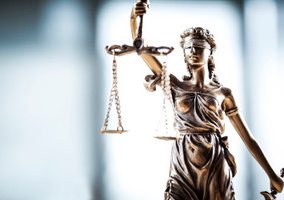In an October 2021 blog about the impact of the pandemic, the Charity Commission noted that “disputes in charities seem to be increasing in volume and, in some cases, in ferocity […] We fear that will continue, to the detriment of charities’ beneficiaries, and perhaps also to public trust in charities”.
If the experience of the charities we work with is anything to go by, this trend has not eased in the four years since.
So, what can charity leaders do to prevent internal disputes, and how should they handle them when they do?
The short answer is to improve your charity's governance. A book could be written on that (and colleagues have done so). In this article, we highlight selected practical steps with a particular focus on disputes between charity trustees.
Communication and record keeping
Many disputes arise from failures of communication, often rooted in poor record keeping. To help avoid this, you may wish to increase support to the board and the charity secretary. Many charities under-resource the governance function, relying on volunteer trustees or staff adding this function to another full-time role. Getting a grip on this area can reduce the scope for dispute on common areas of contention, including:
- Who are the trustees and were they properly appointed?
- Were the requirements of the governing document (eg for notice of meetings) followed?
- Are decisions validly made and clearly recorded?
- Have conflicts of interest been identified, declared and properly managed?
It may also be helpful to seek support for the chair. Managing boards in dispute is not easy. Attempts to smooth over disagreement can create intractable disputes which might have been avoided by acknowledging a difference of opinion and managing it openly. Seeking professional support, if only as a sounding board, can help.
The governing document, procedures and training
The existential challenges charities faced during the pandemic and the background of profound individual stress put enormous strain on the relationships between charity trustees. Many charities continue to face such challenges, whether because of the challenging economic environment, organisation specific issues, or other reasons – and this can cause or exacerbate disputes between trustees.
To help avoid such disputes, and make it easier to manage them, charities can:
- Ensure their governing document includes a well-drafted power to remove trustees. This is a particular issue for charities formed as CIOs. They cannot fall back on the trustee removal framework under company law, and it is not unusual for CIOs to be formed using the commission's model constitutions without including provision for the members to remove a trustee.
- Introduce a code of conduct for trustees. The process of agreeing the code – and getting the buy-in of board members – is as important as the document itself.
- Implement a process for trustee induction and periodic training to ensure trustees are familiar with the governance structure of the charity, associated policies and procedures and the surrounding legal framework. The discussion prompted by effective training can be as useful as any specific knowledge imparted.
Once disputes arise
If a trustee dispute is brewing, you should:
- Review Charity Commission guidance on trustee decision-making and the management of disputes.
- Consider whether the dispute can be resolved using the charity's usual decision-making procedures, perhaps by pushing the issue to a vote and recording the minority view.
- Assess whether other options such as the removal of a trustee will assist.
- Seek professional advice at an early stage – board disputes can paralyse a charity and cause significant reputational damage. You will want to be sure of your ground.
Involving the Charity Commission
The board, or individual trustees, may seek to involve the Charity Commission. Often this takes the form of allegations that the behaviour of one or more trustees places them firmly in the wrong. The board should also be considering its serious incident reporting obligations and may feel obliged to report the developing dispute.
Trustees are often disappointed to discover that the Charity Commission is not as ready to intervene as they expect. The commission's resources are limited, and it is keenly aware of the way internal disputes can consume time and energy.
Where disputes are drawn to the commission's attention, the first response may be a simple reminder of its guidance that: “It is your responsibility as trustees to try to resolve a disagreement or dispute. The Charity Commission can only get involved in exceptional circumstances.”
If pressed, it will often press the board to explore mediation to resolve the dispute. This will be unwelcome if you have made efforts to resolve the dispute and approached the commission when those failed.
Nonetheless, it will be necessary to consider carefully whether mediation could be helpful, if only in order to satisfy the commission that there is no realistic prospect of success through mediation. Where that is the case, and the board wishes to take legal proceedings, it will need to apply to the commission, or the court, for consent to take “charity proceedings”, a category of disputes involving the internal administration of charities.
This is a significant step and only marks the beginning of what could be a lengthy legal process. Before reaching that stage, you will want to have considered carefully with your advisors all options for resolving the dispute without legal proceedings, as well as the steps required to protect the charity's position should proceedings be unavoidable.
Shivaji Shiva is a partner at VWV












